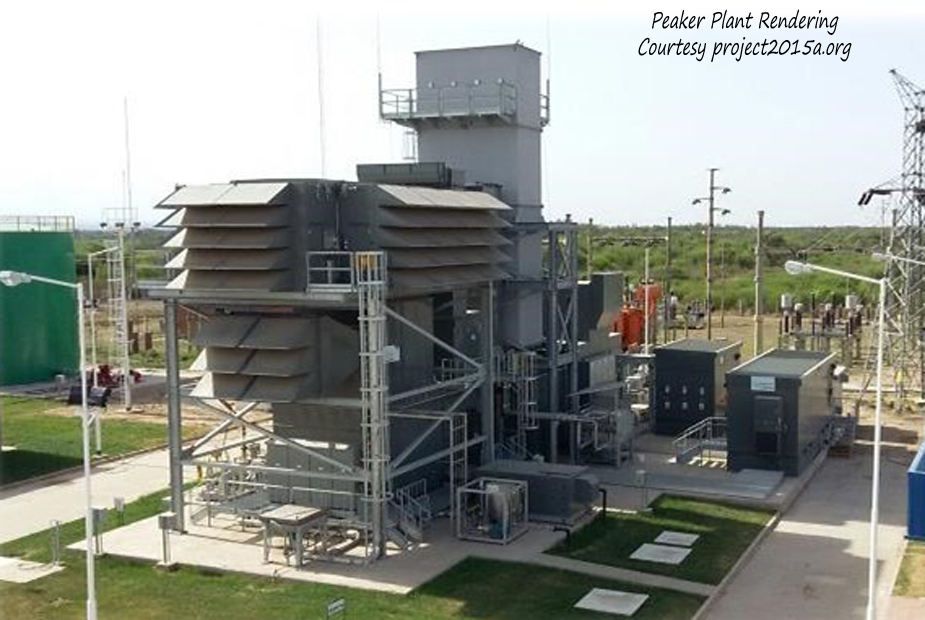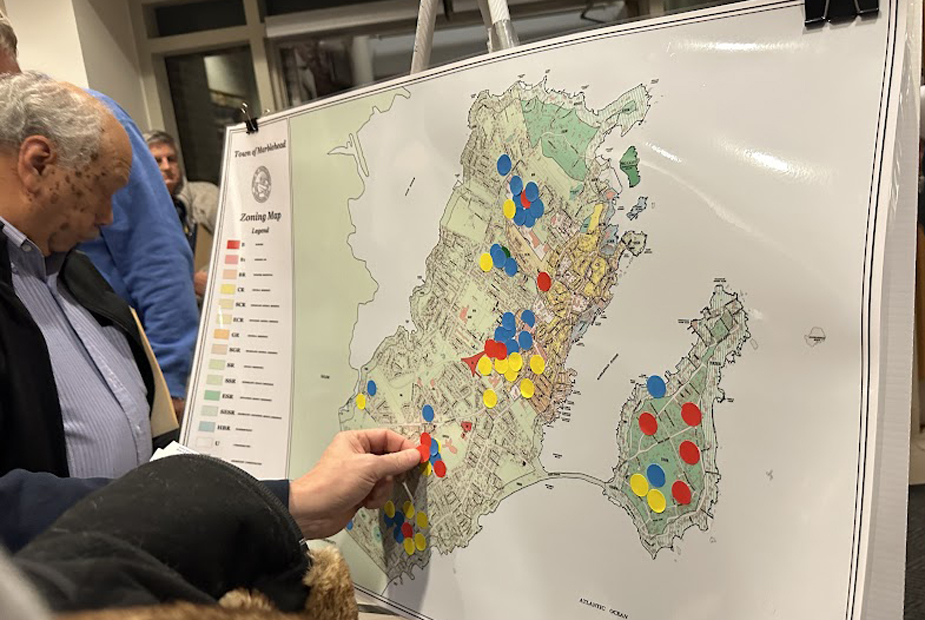Electric Light Dept Perspectives: Is the Peaker Plant a Good Idea?
In March 2021, the state of Massachusetts adopted a plan to reduce carbon emissions. Called “An Act Creating A Next-Generation Roadmap For Massachusetts Climate Policy,” the law specifies that the state will reduce emissions by 50 percent before 2030 compared to the 1990 baseline, and sets a goal of net zero greenhouse gas emissions by the year 2050.
As this transition takes place, there have been discussions about the reliability of the energy supply and the potential for rolling blackouts or brownouts during periods of peak demand, particularly as a result of extremely hot or cold weather conditions. To address these challenges, Marblehead has invested in the Peabody Peaker Plant, also referred to as Project 2015A, which is described as “A 55 megawatt capacity reliability resource” designed to produce energy from natural gas to compensate for the sometimes intermittent supply of clean energy and provide a backup during periods of peak demand.
Marblehead is one of 14 communities to invest in the Peaker Plant, in part to meet regulatory minimum capacity requirements. Scheduled to go online on July 1, 2023, the Peaker Plant is expected to be used on a limited basis – possibly several hundred hours per year – when demand peaks and threatens to overwhelm energy supplies available from other sources. Groups that have raised questions about the use of the Peaker Plant – including Sustainable Marblehead – indicate that the plant was originally approved in 2015, no longer reflects state-of-the-art technology, and risks undermining Marblehead’s goal of reducing carbon emissions.
In light of these ongoing discussions, Marblehead Beacon asked the four candidates running for seats on the Marblehead Electric Light Department board to weigh in. There are two candidates for the one available three-year seat: Lisa Wolf, who currently serves as a commissioner, and Walter Homan, who previously served for 15 years. There are also two candidates for the remaining unexpired term opened up by the resignation of Karl Johnson last summer. Adam Smith, one of the two current candidates, was selected to fill this seat on a temporary basis over the past year. His opponent for the one-year seat is Nate Burke, who previously served on the commission from 2020 to 2021.
Marblehead Beacon asked the candidates the following:
Marblehead has made an investment in the Peaker Plant in Peabody to provide the town with electricity during power shortages. This plant has been controversial because it is powered by natural gas at a time when there is a push toward renewable energy sources. Do you support the use of this plant? If not, what do you propose as an alternative that could fill the gap during a long-term supply shortage (e.g. extended heat wave or extended deep freeze)?
Their replies, in alphabetical order, are as follows:
Nate Burke
"The Peaker Plant is necessary as our 'peak provider' as we have no other options currently. The alternative to this plan could potentially be an industrial battery although we would need multiple batteries to match the Peaker Plant. Another interesting option is that our Peabody location is capable of being run as a green hydrogen facility. This is an option that should be investigated fully."
Walter Homan
"I support the Peaker Plant in Peabody based on the fact that we will be in need of additional reliable energy during our 'peak' times to avoid rolling brownouts. It is a state of the art facility, runs cleaner than older facilities. The plant will only be used on an emergency basis and will be used an estimated less than 200 hours a year, giving us the peace of mind that there will be energy when the rate payers of Marblehead need it. This is NOT a generating plant, it is strictly being used for supporting energy during those 'peak' times."
Adam Smith
"I wish they would have found a better location further away from the seven neighborhoods in Peabody where residents are already suffering elevated rates of cancer. Marblehead has already lived through this with our proximity to the old Salem coal plant, where the negative health effects are still being felt. Unfortunately, the residents of Peabody asked their town government and light plant not to do this, but it's happening anyway.
Marblehead is a 4% shareholder in the overall $85M project. The decision to do this was made before my time on the board. I question what else could have been done with $85M dollars in ratepayer money. At this point it makes financial sense to maintain our small share, but I hope that we only need to run the plant for a few peak hours every year.
It should be noted that this plant wouldn't work during a prolonged supply shortage because it’s dependent on the same gas pipeline as everyone else and our small 2.5MW share would only cover about 10% of Marblehead’s peak power needs.
To fill the gap, I support more rooftop solar on schools, municipal buildings, homes, and businesses to reduce electric rates for everyone by making Marblehead more energy independent and avoiding costly transmission charges to bring electricity into town from outside sources. Conservation is also very important. If more homeowners could switch their electric use to non-peak hours, as we urge Marblehead residents to do every summer during heat waves, we could avoid having to buy power on the open market when costs are highest and the power comes from the dirtiest sources."
Lisa Wolf
"The Light Department has an obligation to ISO-NE, the regional grid manager, to provide a certain amount of power to the grid at peak demand times, proportional to the amount we consume. The Peaker Plant represents part of that obligation, and the much dirtier Wilkins diesel generator at the Transfer Station also helps meet that obligation. In 2015, when the Peabody plant was first proposed and the initial contracts were written, natural gas was seen as a clean alternative to the older oil and diesel generators, and as a bridge fuel until reliable renewable sources could be developed. When the project sought bonding approval from the DPU in 2021, there were potentially better alternatives to consider. But MMLD was already legally bound by a contract with onerous early withdrawal penalties so pulling out of the project was not a fiscally responsible option.
What this conversation has largely missed is that one way to reduce our capacity obligation is to reduce our peak demand. The Light Department could do a much better job communicating to customers how critical time-of-use is to reducing department costs. 37% of our total power supply costs are based on our peak summer demand. When I joined the commission in 2020 there was no system in place to alert customers about summer peaks, and the general manager expressed skepticism that voluntary peak reduction could make a difference. My first task as the Wellesley Municipal Light Plant Sustainability Coordinator was to expand communication about peak reduction and broadcast peak alerts using all available channels. As a result, Wellesley’s demand dropped by 750 kW during last summer’s peak, saving the department almost $60,000. Educating customers about demand management is high priority. All customers should be encouraged to schedule car chargers, thermostats, and water heaters to operate at off-peak hours.
This past winter, some in the public power community expressed concern over blackouts that might result from a winter natural gas shortage. A potential natural gas shortage is a regional winter issue, when electricity competes with home heating for natural gas. There is no simple solution to this dynamic situation, but one obvious part of the solution is shifting home heating from gas to electric, resulting in an overall reduction in gas use and significant gain in energy efficiency. Taking pressure off the gas supply should also favorably impact gas pricing and availability."








